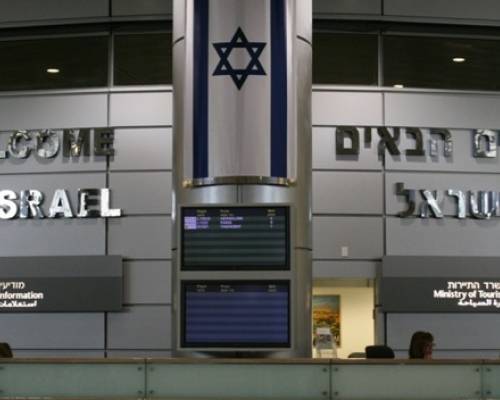Travelling to Israel or the West Bank - Gaza? Read this and know what to expect
Israel is at the moment an unpredictable country, where the West Bank and Gaza have become areas that RPS would advise against travelling to for the foreseeable future.
Rocket attacks from Gaza into Israel and Israeli air strikes on Gaza continue.
Getting into Gaza now is almost impossible unless you already have permits. This update is aimed at people already in Israel and for those planning to travel there shortly.
The British Information and Services Office in Gaza is now closed due to the current situation. The British FCO can no longer offer any consular assistance in Gaza.
The FCO arranged an assisted departure of British nationals and their dependants from Gaza on 13 July and arranged an additional assisted departure. The window for registration for this second additional assisted departure is now closed and the FCO cannot guarantee that there will be any future opportunities for another assisted departure from Gaza.
The FCO advise against all but essential travel to areas of Israel within 40km of the border with Gaza (including Sderot, Netivot, Ashkelon, Ashdod, Be’er Sheva, and Kiryat HaMalachi).
Since 7 July hundreds of rockets have been fired into southern Israel from Gaza, landing in cities including Ashdod, Ashkelon and Beer Sheva, as well as central Israel, including Tel Aviv. Rockets have also been fired into northern Israel, including Haifa, Nahariya and other cities in the Western Galilee region. Shrapnel from missiles also reportedly hit civilian maritime traffic off the Israeli coast. In the early hours of 15 July rockets hit the southern city of Eilat. These areas should be avoided if possible.
Hamas’ military wing has publicly stated that rocket attacks on Israeli military units would continue, including those at Ben Gurion airport. The FCO is aware of at least 1 rocket that has been fired at the airport which was intercepted by the Israeli Iron Dome defence system.
If you’re currently in Israel you should follow directives from the Israel Defence Force’s Home Front Command, pay attention to local alerts and seek shelter quickly if the siren sounds.
Be prepared
RPS advises that you find out where your nearest shelter is and how long it takes you to get there. Prepare a bag "grab bag" which you can easily take with you and which has enough emergency equipment to keep you going for at least 24 hours.
The IDF dropped leaflets over the area north of Gaza City (Beit Hanoun, Beit Lahia) advising Palestinians to leave their homes by midday (local time) on 13 July in warning of a ‘short and temporary’ IDF campaign to attack areas from which rockets are being launched.
All travel to the Sheba’a Farms and Ghajjar along the border with Lebanon (the ‘Blue Line’) is not advised at this time.
All travel east of Route 98 along the Syrian border is also not advised. Rocket attacks and sporadic gunfire have occurred without warning since 2012 and an Israeli civilian was killed by fire from the Syrian side of the border fence on 22 June 2014.
Trying to enter Gaza by sea will breach the restrictions imposed by the Israeli navy and may involve being fired upon or arrested.
The situation in the West Bank and East Jerusalem remains tense and the security situation is volatile. A heavy Israeli security presence is likely.
RPS advises that you should be especially vigilant after Friday prayers and on religious holidays. Avoid moving around after dark in the West Bank.
Areas to be vigiliant
Take great care when travelling anywhere in the West Bank, particularly in areas close to refugee camps, in and around Israeli settlements and in the cities of Jenin, Nablus, Ramallah and Hebron. Demonstrations and other forms of civil unrest can occur at short notice and often turn violent. Regional developments can have an impact on the local security situation. Monitor local media and avoid all protests.
Stay alert in and around the Old City in Jerusalem, as isolated protests and demonstrations can occur both in the Old City and in East Jerusalem. Leave the area immediately if there is evidence of tension or unrest. Keep up to date with developments, be aware of the local situation and avoid any protests or demonstrations.
Violent protests have broken out in a number of Arab towns in Israel (including Qalansawe, Taybeh, Tira, Baqa al-Garbiyye in the Triangle, Ar’ara in Wadi Ara, and Nazareth) following recent events.
The Rafah border with Egypt is reportedly open to Egyptian passport holders, foreign passport holders and those requiring urgent medical attention.
If you are in Gaza and hold British nationality and plan to leave via this route, please inform the FCO by calling +44 207008 1500.
VIsas and entry requirements to Israel
Visa and other entry requirements are complex. Make sure you are aware of Israeli immigration policies for your country before you travel. RPS will be issuing an article on how to get into Israel later today.
Allow additional time for increased security measures and checks at airports during Israeli holidays and during the peak summer tourist season.
Contact RPS for more information on travel to Israel [email protected]


